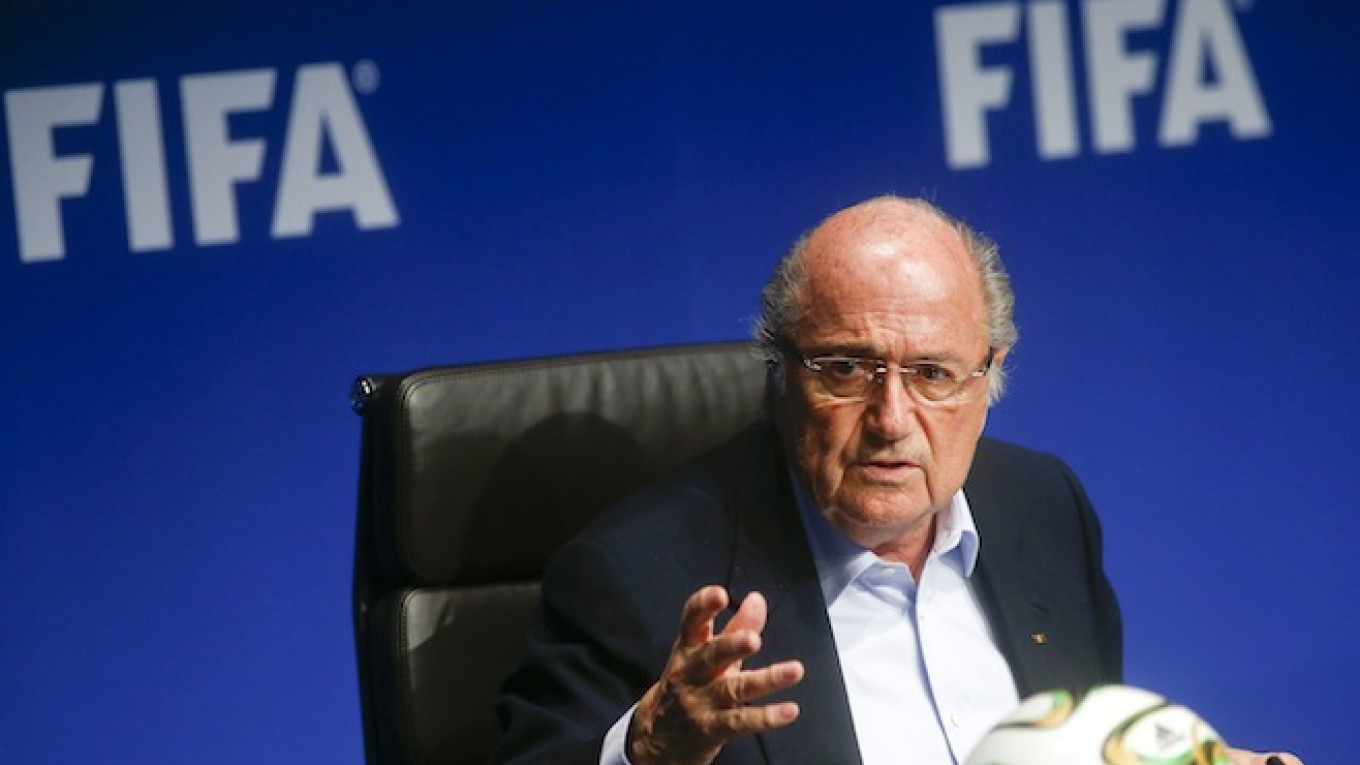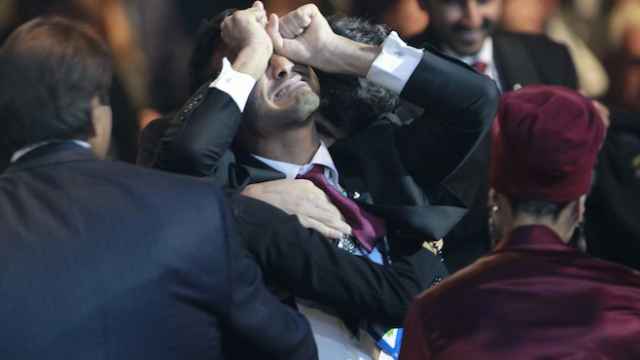BERNE, Oct 17 — A report into the turbulent bidding process for the rights to host the 2018 and 2022 World Cups — won by Russia and Qatar, respectively — cannot be made fully public for legal reasons, though excerpts of it may be, FIFA's ethics judge Hans-Joachim Eckert said Friday.
Eckert is still studying the report produced by his counterpart Michael Garcia into whether there was corruption in the process, which led to the 2018 tournament being awarded to Russia and the 2022 event to Qatar, and expects to issue a statement on his findings by mid-November.
"The statement will contain an overview of the investigation report, a summary of the main findings, conclusions and recommendations of the report, as well as a brief evaluation of the same," Eckert said in an interview published on FIFA's website.
One of his tasks would be to decide which parts of the report could be made public, he added.
Eckert cannot strip either Russia or Qatar from hosting their tournaments but can press charges against individuals.
Several members of FIFA's own executive committee have called for the report to be made public, as well as FIFA presidential candidate Jerome Champagne, a decision which Eckert said fell exclusively to him and his deputy Alan Sullivan.
Speaking Monday in London, Garcia criticized FIFA for not conducting its ethics investigations in an open manner and called for the report to be made public in line with "the goals of the reform process."
Garcia Findings
However, Eckert said Garcia had not called for full publication of the findings.
"Michael Garcia has never said that the report should be 100 percent published. He merely said the 'appropriate' publication of his report should be authorized," Eckert said.
"The deputy chairman of the adjudicatory chamber and I now have the task of drawing up this appropriate form for publication.
"Part of my current examination involves deciding what form this appropriate publication should take, whether this means issuing a statement regarding the investigation report or whether certain parts of the investigation report will be published while maintaining anonymity, or indeed a combination of these possibilities," he said.
"This decision is exclusively a matter for the adjudicatory chamber [of the ethics committee] — neither the investigatory chamber nor the FIFA Executive Committee can decide. The main requirement is that personal rights must not be damaged."
Eckert added: "Publishing the report in full would actually put the FIFA ethics committee and FIFA itself in a very difficult situation legally.
"What is more, we have to respect the personal rights of the people mentioned in the report, which in the case of full publication of the report would in all likelihood not be possible."
FIFA and Qatar World Cup organizers have been fending off allegations of corruption ever since the Gulf state was awarded the 2022 tournament nearly four years ago.
Qatar, which has repeatedly denied the allegations, has also been criticized over its treatment of migrant workers who work in the construction industry.
The 2018 tournament was awarded to Russia as part of the same bidding process which culminated in December 2010.
A Message from The Moscow Times:
Dear readers,
We are facing unprecedented challenges. Russia's Prosecutor General's Office has designated The Moscow Times as an "undesirable" organization, criminalizing our work and putting our staff at risk of prosecution. This follows our earlier unjust labeling as a "foreign agent."
These actions are direct attempts to silence independent journalism in Russia. The authorities claim our work "discredits the decisions of the Russian leadership." We see things differently: we strive to provide accurate, unbiased reporting on Russia.
We, the journalists of The Moscow Times, refuse to be silenced. But to continue our work, we need your help.
Your support, no matter how small, makes a world of difference. If you can, please support us monthly starting from just $2. It's quick to set up, and every contribution makes a significant impact.
By supporting The Moscow Times, you're defending open, independent journalism in the face of repression. Thank you for standing with us.
Remind me later.






